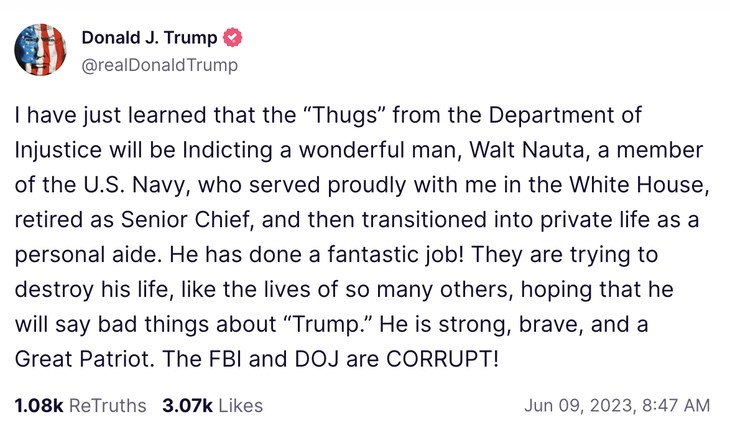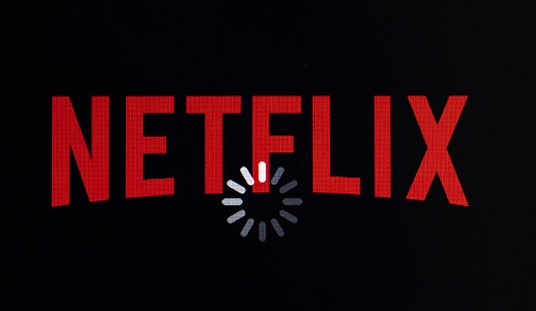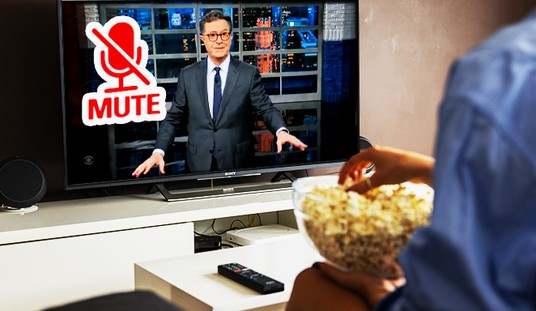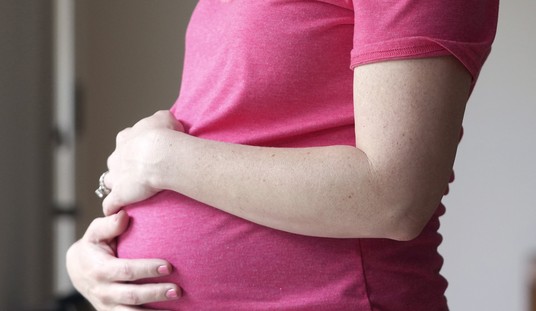Former President Donald Trump has been ordered by Magistrate Judge Jonathan Goodman to not engage in discussions about his classified documents case with co-defendant Walt Nauta and potential witnesses. The decision was made during Trump’s Tuesday arraignment, marking the first time a former President has been federally prosecuted in our nation’s history. Trump pleaded not guilty to 37 counts related to the documents seized from Mar-a-Lago in August.
The Contentious Issue of Communication
In a hushed arraignment hearing on the 13th floor, the former President agreed to a court order imposed as a condition for his release. The order was a slight step back from a stricter ban that was initially proposed, which is considered a win for Trump and also seen as a success for Special Counsel Jack Smith.
The courtroom scene depicted Trump, flanked by his lawyers Todd Blanche and Chris Kise, with Nauta and his lawyer, Stanley Woodward, positioned nearby. The most significant and contentious aspect of the hearing revolved around whom Trump could or couldn’t communicate with. At first, the judge contemplated a complete ban on Trump contacting Nauta or potential key witnesses. Judge Goodman said:
Usually, the condition is no contact whatsoever.
This would have meant that Trump could only communicate with Nauta and potential witnesses through their attorneys.
Legal Arguments
Prosecutor David Harbach suggested the government’s legal team would draft a list that would be narrow in scope, specifically addressing the issue of witness contact. Harbach clarified that the list would not encompass all potential trial witnesses but would address the judge’s concerns regarding witness contact while accommodating Trump’s circumstances.
Judge Goodman proposed the idea of creating a two-category list. One category would include witnesses with whom Trump should have no contact, while the other category would restrict Trump from discussing the details of the case.
Attorney Blanche objected to this approach, deeming it unnecessary and potentially unworkable. Blanche cited logistical challenges due to Nauta’s constant presence with Trump, which necessitated frequent interaction. Blanche argued that such a restriction was inappropriate and ineffective, saying that the government’s case involved individuals who worked with Trump on a daily basis.
… worked for President Trump for years and rely on him for their livelihood.
He stated that potential witnesses may include people who provide the former President’s security services, saying:
Many of the people, including the men and women to protect him, may be witnesses in this case.
Blanche pointed out that the facts of the case involve “everything in President Trump’s life,” noting that one of the key witnesses “is still the president’s lawyer.”
After a prolonged discussion, Judge Goodman decided that Trump could engage with Nauta and others in his circle but strictly refrain from discussing the facts of the case.
One of the prosecutors highlighted a crucial issue, stating:
The elephant in the room is that we don’t have a list (of witnesses) yet.
In response, Judge Goodman instructed the Justice Department to promptly provide the list of witnesses to clarify the scope of the order.
Legal experts are calling it a compromise, but they’re skeptical about how practical it will be to enforce due to vagueness and Trump’s unique position as a former president facing federal charges while actively campaigning for the White House.
Trump’s Campaign Activities and Vague Order
In a speech at his Bedminster golf club shortly after the hearing, Trump criticized Special Counsel Jack Smith, describing the case as a politically motivated witch hunt. Trump said the prosecution is:
…one of the most outrageous and vicious legal theories ever put forward in an American court of law.
Some legal analysts argue that Trump’s remarks came dangerously close to violating the order, noting that potential witnesses whom Trump had agreed not to discuss the case with were present in the audience. Mark Zaid, a defense lawyer, said the speech within hours of the order being issued demonstrates, “just one of any number of atypical circumstances that will plague this case.” Trump’s campaign frequently raises the issues within the case, as the former President does in his speeches and on public social media platforms.
Zaid said:
Few defendants would have an opportunity to speak to a co-defendant or witness in a manner that Trump will have available.
While the order prohibits direct discussions with Nauta and witnesses about the facts and legal strategies of the case, Zaid suggests that if Trump makes comments during public events attended by Nauta or through media channels that imply such barred discussions, prosecutors may seek further clarification or expand the scope of the order, saying:
Should Trump make comments at an event attended by Nauta, or perhaps through television or social media, and it appears that very clear messages if not instructions, are being made that would be deemed inappropriate if the two were meeting privately, I would expect prosecutors to revisit this issue before the judge for further clarification or expansion of the scope of the gag order.
While Trump was released without bail on his own recognizance, logistical challenges arose in imposing a complete ban on contact between Trump, Nauta, and potential witnesses. Glenn Kirschner, a career federal prosecutor, shares skepticism about the order’s enforceability, stating:
Regarding the modest limitation on Trump and Nauta not to discuss the case with each other, it’s impossible to enforce and is therefore borderline meaningless.

Shortly after his arraignment, Trump resumed his campaign activities, accompanied by Nauta. He made appearances at a Miami restaurant filled with supporters and later attended a fundraiser in New Jersey.
Tom Fitton, president of Judicial Watch, a conservative watchdog group and one of Trump’s vocal supporters, criticizes the vagueness of the order. Fitton questions how Trump can campaign without referencing the case, saying:
This issue goes beyond a limited list of witnesses. The judge should just remind the defendant (Trump) that you can’t compromise the case by trying to unlawfully influence a witness’s testimony. But it obviously impairs his candidacy to not be able to talk about the case.
Fitton said the order is so vague that it will virtually guarantee a confrontation between Trump, the Justice Department, and the judge overseeing the case. Fitton said:
When Trump starts talking about the case, which he has every right to do on the campaign trail, what are Nauta and all of the other people around Trump every day supposed to do? Cover their ears so they can’t hear it?
Fitton, who was at a private dinner with Trump ahead of his arraignment, continued asking unanswered questions about the logistics of the order while Trump makes public appearances, saying:
What is he going to say, from the podium or at a campaign or even smaller donor event? ‘I’d love to talk about this case but I’ve been advised by counsel that I can’t talk about the biggest case in American history?’ Does he need a list of who’s attending before he can decide whether he can talk about it?
Release Paperwork
Due to his high-profile public figure status, authorities opted not to take a mugshot of the former president, and he swiftly passed through digital fingerprinting and other court processing procedures. Following a few minor hiccups involving incomplete signatures, the paperwork for release on his own recognizance was finalized shortly after 3:30 p.m., prompting Judge Goodman to remark, “Third time’s the charm.”
Nauta is charged with conspiring to obstruct a federal investigation and didn’t enter a plea at the hearing due to not having local counsel.
Stanley Woodward, Nauta’s attorney, raised an issue regarding his bond form, noting that it included additional conditions that were not previously discussed for his client. As a result, the document was returned to the bench for correction. Once the changes were made and the corrected form was handed back to Nauta for his signature, the proceedings were able to conclude.
Judge Goodman remarked, “My involvement in this case ends right about now.”
Read More:
What Is ‘Espionage’ and Why Is Trump Being Indicted for It?
The Trump Indictment Is the Quiet Canary in the American Coal Mine













Join the conversation as a VIP Member